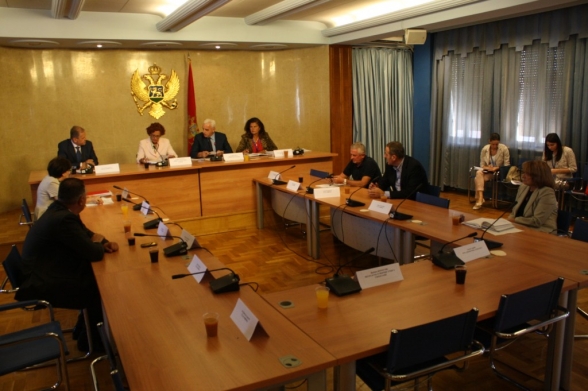The introductory statements on the Proposal for the Law were given by Minister of Health Mr Budimir Šegrt who, inter alia, sad that the adoption of this Law was imposed by the need for further and more complete harmonisation of the regulations with regulations of the European Union governing this field, emphasising that the adoption of the separate law governing the field of human tissues and cells was initiated because the Law in force did not make difference between organs and tissue and/or cells.
The Proposal for the Law more completely regulate standards of quality and security of tissues and cells which are intended for use in humans in the procedures of obtaining, giving, taking, testing, processing, preserving, storing, distributing, transplanting, importing, exporting and exchanging tissues and cells, as well as for industrial manufacture of products derived from tissues and cells, in order to ensure protection of human health. In line with commitment to protect human rights and dignity of human beings in the procedures of application of biomedical technology in the treatment, the Proposal for the Law is based on the following principles: the consent of the donor and recipient, donating with the aim of treatment, non-commercial donating and the anonymity of donors and recipients. With the aim of providing security of patients, each phase of this project was established: obligations of the Ministry, other health institutions and educational system to popularise and promote donation of tissues and cells, defining conditions under which health institutions may perform these activities, determining classification of health workers who are to carry out these procedures, determining the procedure for forming the waiting lists, obligation of health institutions concerning establishing and maintaining systems of quality, obligation of establishing the system of traceability, system for monitoring and reporting the adverse drug reactions, defining the methods of removing from living and dead donors, the procedure of transplanting, importing, exporting and exchanging tissues and cells, obligation of keeping adequate documents and records on procedures, obligations of reporting to the European Union and defining penal provisions. The adoption of this Law will represent supplementation of the national legislative corpus, which represent a set of laws from the field of biomedical technologies aimed at protection of human rights and dignity of human beings in procedures when their application is the only possible choice.
MPs’ questions were related to whether the Proposal for the Law would be applied in the case of organ transplantations, whether the Proposal for the Law was related to sex cells and in which manner health care institutions for removing and transplanting human tissues and cells would be determined.
While answering to posed question, representative of the proposer - Director General of Directorate for Health Management Ms Gorica Savović replied that the draft law on removal and transplantation of body for therapeutic purposes was prepared, which would specifically regulate this area, which is in line with European Union legislation. Additionally, she explained that the Proposal for the Law was also related to sex cells, which was proposed by Article 1 of the Proposal for the Law. The transplantation programme will determine which institutions may perform processes of obtaining and transplanting tissues and cells, and in line with that Programme, their transportation will be carried out in accordance with standards of quality and safety as well as education of professional staff.
The Committee on Human Rights and Freedoms, by a majority of votes, supported the Proposal for the Law on Removal and Transplantation of Human Tissues and Cells for Therapeutic Purposes, and proposed to the Parliament to adopt thereof together with three amendments submitted by the Committee and accepted by the proposer for the Law.
Within the second item of the agenda, the Committee, in line with the call of the Ministry of Human and Minority Rights for determining a representative of the Committee on Human Rights and Freedoms who will participate in the Working Group for the analysis of compliance of legislation in the domestic legal system with the standards contained in the Law on Prohibition of Discrimination against Persons with Disabilities, unanimously has decided that MP Mr Husnija Šabović will be a representative of the Committee.









